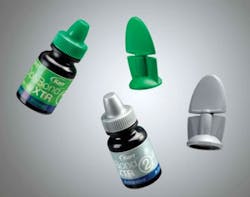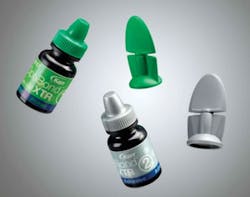Advertising, marketing, entertaining ... and deducting — What you need to know
By Mark Battersby
Without marketing or advertising, no one would know the dental equipment or supplies business existed. Fortunately, a marketing strategy doesn't have to mean multimillion-dollar TV commercials. After all, there are plenty of ways to market a dental equipment business — and a variety of tax deductions to help make that marketing and advertising more affordable. Include entertainment in the dental sales operation's marketing strategy, and tax deductions will help underwrite the fun side of promoting your business.
Advertising and marketing can mean the continued life of a dental equipment or supplies business, despite the effects of the economy, competition, or other factors beyond the control of the owner. Because there are many aspects to advertising and marketing, it is not surprising that the related expenditures fall within several sections of the tax regulations.
Advertising expenses
All too often, one of the first expenses reduced or cut by many troubled businesses is the most basic of expenditures — advertising. This is a doubly short sighted strategy given the necessity of advertising in bad times, and the fact that Uncle Sam, in the form of tax deductions, will often pick up part of those advertising expenses.
Advertising expenses encompass everything from business cards, catalogs, on-site demonstrations, package designs, prizes and contests, sponsorships, new product and/or service launches, and other promotional activities. Generally, advertising, marketing, and other selling expenses are tax deductible as "ordinary and necessary" business expenses, but not always.
All reasonable advertising expenses are tax deductible as long as they bare a reasonable relationship to the dental equipment business. Under our tax rules, deductible expenses may be for the purpose of gaining goodwill as well as immediate sales. Even better, the cost of advertising is deductible when paid or incurred, even though the advertising program extends over several years or is expected to result in benefits extending over a period of years.
The Tax Court and IRS require that the cost of printing a catalog that is not replaced annually be amortized over the expected life of the catalog. However, some courts have held to the contrary, taking the view that catalog costs are advertising expenses and immediately deductible.
The cost of public service or other impartial advertising, such as that designed to encourage the public to register to vote, are also deductible. But no deduction may be claimed for the expense of advertising in political programs, or for admission to political fund-raising or inaugural functions and similar events. This includes admission to programs if any part of the proceeds directly or indirectly inures to or for the use of a political party or candidate.
Lobbying Expenses: When it comes to promoting the interests of the dental equipment and supplies business, lobbying expenses directed toward influencing federal or state legislation are generally not deductible. However, this prohibition does not generally apply to in-house expenses that do not exceed $2,000 for a tax year. Of course, lobbying expenses pertaining to local legislation are deductible.
Web site development costs
The IRS has not issued formal guidance on how to treat Web site development costs. However, informal, internal IRS guidance suggests that one approach is to treat these costs like software and depreciate them over three years.
It is clear that taxpayers who pay a lot to develop sophisticated sites have been allocating their costs to items such as software development (currently deductible like research and development costs), and currently deductible advertising expense.
Research as a tax deduction
Testing the waters before committing to an advertising campaign is always advisable. Unfortunately, only costs for research in the laboratory or experimental purposes (whether carried on by the dental equipment manufacturer or supplier or on behalf of the taxpayer by a third party) are tax deductible. Market research and normal product testing costs are not research expenditures under the tax rules.
Mailing lists
Mailing lists are an important part of advertising campaigns for many dental equipment businesses. On one hand, the mailing list is an intangible asset, deductible only if a reasonable life can be determined for it. A tax deduction for the cost of compiling that list is a little trickier.
Consider a dental equipment business that mails catalogs to dentists and practices on its own mailing list, as well as to those on lists that it rents. Prospects for the permanent list are from advertising, and from those added to the list when they make purchases. The business keeps records of its costs for adding to the mailing lists, and can expense those costs in the year the catalog is distributed.
The IRS ruled that a company can deduct an ordinary business expense for the costs of adding names to the mailing list. Of course, this situation involved a catalog published semi-annually, while in other cases the IRS ruled catalogs had a useful life of several years.
Marketing as advertising
Paid advertising isn't the only way to spread the word about your dental equipment or supplies business. Public relations are marketing strategies that span everything from press releases to networking to sponsoring a contest to holding special events.
No deduction is allowed for dues paid to any club for business, pleasure, recreation, or other social purposes, even if membership is used to promote the dental equipment business. Fortunately, this disallowance does not extend to professional organizations (e.g., bar and accounting associations) or public service organizations (e.g., Kiwanis and Rotary clubs).
Entertainment
A dental equipment manufacturer is allowed a deduction for business entertainment, as long as there is a direct relationship between the expense and the development of the business. However, special limits are imposed on the deduction of business-related entertainment, meals, and gift expenses.
First and foremost, no tax deduction is allowed for entertaining guests at nightclubs, sporting events, theaters, etc., unless that cost is:
(1) Directly related to the active conduct of a trade or business, or
(2) For entertainment directly before or after a substantial and bona fide business discussion associated with the conduct of that business.
The business discussion must be the principal aspect of the combined entertainment and business and must represent an active effort by the dental equipment manufacturer to obtain income or other business benefit. However, if a meal expense directly precedes or follows a substantial and bona fide business discussion (including a business meeting at a convention or trade show), then it is deductible if the expense is associated with the active conduct of the business. Of course, the business must be able to substantiate the expense.
There are two more restrictions placed on the deduction of meal expenses: (1) meal expenses generally are not deductible if neither the dental equipment manufacturer or the manufacturer's employee is present at the meal, and (2) a deduction will not be allowed for food and beverage if such expense is lavish or extravagant under the circumstances.
50% Limitation Rule: The amount allowed as a deduction for meal and entertainment expenses is generally limited to 50% of such expenses. The 50% rule is applied only after determining the amount of the otherwise allowable deductions. For instance, the portion of a meal that is lavish or extravagant must first be subtracted from the meal cost before the 50% reduction is applied.
Giving is often advertising
Yet another form of advertising is the giving of gifts by a dental equipment or supply business. Deductions for business gifts, whether made directly or indirectly, are limited to $25 per recipient per year. Items clearly of an advertising nature that cost $4 or less, and signs, display racks, or other promotional materials given for use on business premises are not gifts.
A dental sales business that gives customers or prospective customers an item that might be considered either a gift or entertainment will generally benefit from the entertainment write-off, ignoring the $25 limit. Of course, if the operation gives a customer packaged food or beverages to be used later, they are considered gifts.
To spur sales, many dental sales businesses frequently give away small samples. Under tax rules, the cost of the samples can be deducted immediately. If the samples are purchased separately from the products being sold, their cost is an ordinary and necessary business expense. If the item was included in inventory, it cannot be deducted twice. It will already be part of the cost of goods sold.
Getting the maximum benefits from advertising and marketing expenditures or reaping the cost-cutting deductions often requires the help of qualified professionals. Whether help includes others or is limited to a qualified tax professional, deciding whether to advertise or market the dental equipment or supplies operation's goods, products, or services should be a "no brainer," good times or bad.

